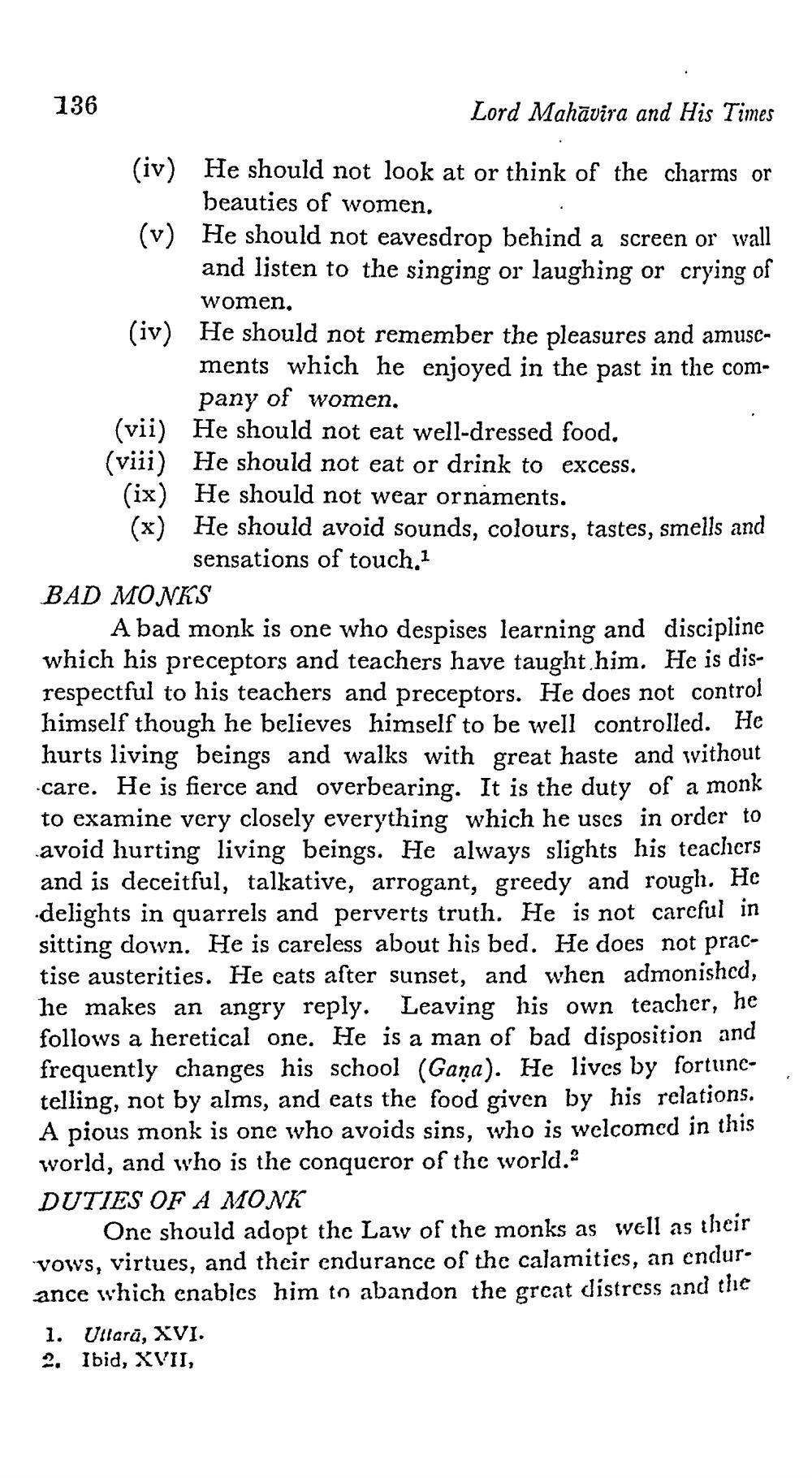________________
136
Lord Mahavira and His Times
(v)
(iv) He should not look at or think of the charms or
beauties of women. He should not eavesdrop behind a screen or wall and listen to the singing or laughing or crying of
women, (iv) He should not remember the pleasures and amuse
ments which he enjoyed in the past in the com
pany of women. (vii) He should not eat well-dressed food. (viii) He should not eat or drink to excess. (ix) He should not wear ornaments. (x) He should avoid sounds, colours, tastes, smells and
sensations of touch, BAD MONKS
A bad monk is one who despises learning and discipline which his preceptors and teachers have taught him. He is disrespectful to his teachers and preceptors. He does not control himself though he believes himself to be well controlled. He hurts living beings and walks with great haste and without care. He is fierce and overbearing. It is the duty of a monk to examine very closely everything which he uses in order to avoid hurting living beings. He always slights his teachers and is deceitful, talkative, arrogant, greedy and rough. He delights in quarrels and perverts truth. He is not careful in sitting down. He is careless about his bed. He does not practise austerities. He eats after sunset, and when admonished, he makes an angry reply. Leaving his own teacher, he follows a heretical one. He is a man of bad disposition and frequently changes his school (Gana). He lives by fortunetelling, not by alms, and eats the food given by his relations. A pious monk is one who avoids sins, who is welcomed in this world, and who is the conqueror of the world.” DUTIES OF A MONK
One should adopt the Law of the monks as well as their Vows, virtues, and their endurance of the calamitics, an endur. ance which enables him to abandon the grcat distress and the 1. Ullarā, XVI. 2. Ibid, XVII,




